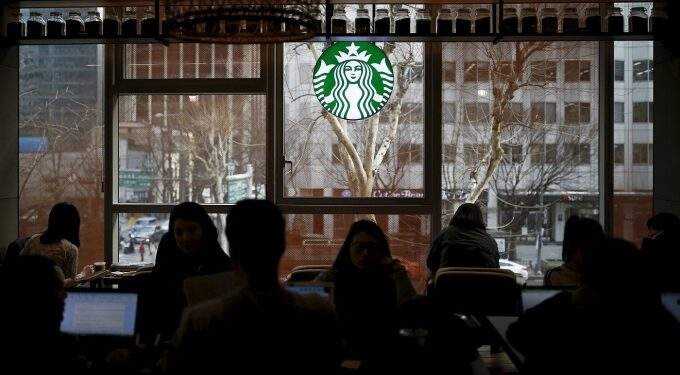The company confirmed Thursday that every branch nationwide has posted notices of the ban, which also include power strips and large cubicle-style dividers, The Korea Herald reported.
The notices remind patrons to take their belongings when they have to step away for long periods and to free up shared tables so others can use them.
A Starbucks representative explained that the new policy was introduced to keep its store experience comfortable and accessible to its customers.
“While laptops and smaller personal devices are welcome, customers are asked to refrain from bringing desktop computers, printers, or other bulky items that may limit seating and impact the shared space,” the person told Business Insider, adding that the new rules do not impose time limits for those dining in.
With more than 2,000 outlets, South Korea is Starbucks’ third biggest market, trailing only the U.S. and China.
The latest policy shift is aimed at curbing a fast-growing trend known locally as “cagongjok” — a term for people who work or study at coffee shops for extended periods.
Though most of them simply use laptops, Starbucks says others have been bringing in large monitors, printers and even partition panels.
 |
|
A social media photo shows a Starbucks customer in South Korea with a three-sided partition and a computer. Photo from Facebook |
The trend has grown amid South Korea’s labor market changes and the shift to remote work.
The pandemic drove many employees to work from home and as they returned to offices, redevelopment limits and soaring rents have restricted supply in Seoul, where businesses compete fiercely for space but cafes are abundant.
Unable to find or afford offices, some firms have turned to co-working spaces or remote work, according to Jo Elfving-Hwang, an associate professor of Korean society and culture at Australia’s Curtin University.
“People just started working from home more, and [businesses] discovered that they didn’t necessarily need a space in the same way,” she told Fortune.
Some café owners have criticized the trend, referring to cagongjok as “electricity thieves” who occupy tables for hours while ordering just one cup of coffee and limiting space for other customers.
It was inevitable that cafés would eventually try to reclaim their image as places for leisure and unwinding rather than as remote workplaces, Elfving-Hwang said.





